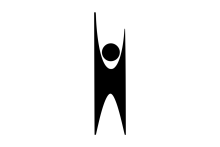imported>TheElectricBomb (This part explained itself too much so I simplified it.) |
imported>Nfan |
||
| Line 245: | Line 245: | ||
===Enemies=== | ===Enemies=== | ||
*[[File:Anti-Humanism.png]] [[Anti-Humanism]] - I´m not a ″reverse theocracy″ nor an empty figure of speech, and you´re just a misanthropic egoistic edgelord! | *[[File:Anti-Humanism.png]] [[Anti-Humanism]] - I´m not a ″reverse theocracy″ nor an empty figure of speech, and you´re just a misanthropic egoistic edgelord! | ||
**[[File:Anti-Humanism.png]] - I! AM! NOT! A! MISANTHROPE! Still | **[[File:Anti-Humanism.png]] - I! AM! NOT! A! MISANTHROPE! Still hate everything about you, by the way. | ||
*[[File:React.png]] [[Reactionaryism]] - You want to limit the potential of humans. Thank god I owned you in both the Enlightenment and the Renaissance. | *[[File:React.png]] [[Reactionaryism]] - You want to limit the potential of humans. Thank god I owned you in both the Enlightenment and the Renaissance. | ||
*[[File:VHMent.png]] [[Voluntary Human Extinction]] - This is ridiculous. | *[[File:VHMent.png]] [[Voluntary Human Extinction]] - This is ridiculous. | ||
Revision as of 16:53, 28 May 2023
 |
Work in Progress "Workers of the world, unite! Separately, in your own homes.!" - Asocialism TheElectricBomb is currently working on this page. Please do not intervene with their work. Instead, contact them to propose additional edits. |
Humanism is a philosophical stance that emphasizes the value and agency of the human species, both individually and collectively. Humanism is non-dogmatic and open-ended. The meaning of the term humanism has fluctuated according to the successive intellectual movements which have identified with it. Generally, however, humanism is the belief that human beings are the source of meaning and values. Humanists see humanity as having the capacity for continued growth and development, and they affirm some notion of human freedom and progress. Humanism views humanity as responsible for the promotion and development of individuals, espouses the equal and inherent dignity of all human beings, and emphasizes a concern for humans in relation to the world. In practice, humanist philosophy advocates for the equal treatment of all people, regardless of their race, ethnic background, sex, gender, religion, or nationality.
Variants
Error creating thumbnail: Unable to save thumbnail to destination Pan-Humanism
Pan-humanism is the concept of an affiliation with the humankind through some sort of legislative structure that allows all technological and economic development to be for the benefit of the people. This co-insides with the idea of a world government, which would serve as a common political authority for all humanity, such as the idea of Error creating thumbnail: Unable to save thumbnail to destination World Federalism.
Error creating thumbnail: Unable to save thumbnail to destination Secular Humanism
Secular Humanism begins with atheism (absence of belief in a deity) and agnosticism or skepticism (epistemological caution that rejects the transcendent as such due to a lack of evidence). Because no transcendent power will save us, secular humanists maintain that humans must take responsibility for themselves. While atheism is a necessary condition for secular humanism, it is not a sufficient one. Far from living in a moral vacuum, secular humanists “wish to encourage wherever possible the growth of moral awareness and the capacity for free choice and an understanding of the consequences thereof.”
Secular humanism emerges, then, as a comprehensive nonreligious life stance that incorporates a naturalistic philosophy, a cosmic outlook rooted in science, and a consequentialist ethical system.[1]
Error creating thumbnail: Unable to save thumbnail to destination Religious Humanism
Religious Humanism is a form of humanism that applies humanistic ethical philosophies on religious principles rather than secular principles. Religious humanism is sometimes referred to as non-theistic religion or congregational humanism. Other theistic humanist traditions have arisen over time, such as Christian humanism formulated by Christian philosophers like Error creating thumbnail: Unable to save thumbnail to destination Jacques Maritain, and Islamic humanism thanks to philosophers like Error creating thumbnail: Unable to save thumbnail to destination Fazlur Rahman.
Some Religious Humanist organizations and religions that include significant numbers of members and clergy who identify as humanists:
- The Humanist Society – This organization has its roots in the Quaker tradition but today is not exclusively tied to that tradition
- The Objector Church – Founded in 2018 as an interfaith religious humanist community.
- Error creating thumbnail: Unable to save thumbnail to destination The Satanic Temple – TST is a non-theistic religion. Its seven tenets espouse humanist values, and the overwhelming majority of TST members identify as humanists.
- Error creating thumbnail: Unable to save thumbnail to destination Unitarian Universalists – As many as half or more of UU congregations identify themselves as humanists when surveyed. Humanist UU's are represented by the UU Humanist Association (HUUmanists)
- Error creating thumbnail: Unable to save thumbnail to destination Religious Society of Friends (Quakers) – Groups within the Quaker communities that hold a humanist perspective include Nontheist Friends
- Judaism – see Humanistic Judaism, Reconstructionist Judaism
- Buddhist – see Humanistic Buddhism
Error creating thumbnail: Unable to save thumbnail to destination Humanistic Capitalism
See: Error creating thumbnail: Unable to save thumbnail to destination Social Capitalism
Humanistic Capitalism is a concept that seeks to unite humanism, specifically the safety and health needs of people and the environment, with market forces and a market-based economy. It is often seen as a middle ground between the ideas of modern capitalism and democratic socialism.
Error creating thumbnail: Unable to save thumbnail to destination Marxist Humanism
See: Error creating thumbnail: Unable to save thumbnail to destination Reformist Marxism
WIP
File:Eco-Hum.png Eco-Humanism
Eco-Humanism is a version of humanism that advocates for environmental ethics. Andrew Brennan was an advocate of ecologic humanism (eco-humanism), the argument that all ontological entities, animate and inanimate, can be given ethical worth purely on the basis that they exist.
History
Proto-Humanism
The origins of Humanism trace back to ancient Error creating thumbnail: Unable to save thumbnail to destination Greece. Later on, these ideas moved to Error creating thumbnail: Unable to save thumbnail to destination Rome. The famous philosopher Error creating thumbnail: Unable to save thumbnail to destination Socrates spent a lot questioning the religion(s) practiced in ancient Greece. Socrates spent scientific thinking into digging the truth of religion and ethics. Of course, while this angered the local population and the elites, and he was sentenced to death for blasphemy, his systematic questioning lead many of his students such as Plato and Error creating thumbnail: Unable to save thumbnail to destination Aristotle to take on after him, examining and justifying the truth before we can accept it as a fact. Aristotle had explored a lot of topics about the human being, such as deism, rationality, eudaimonia, etc. He wanted to explore what gave humans potential.
Humanism was very common in Greek art. It helped create a central focus on anthropologic art. He deeply misses thw Renaissance as well.
The Reinassance
The modern founding of Humanism was developed by poet and scholar Francesco Petrarca in the 14th century, who was believed to be the modern founder of the philosophy. While it was founded as a secular movement, Petrarca was very devout to Catholicism.
After his death, Humanism, at the time as "renaissance Humanism", or also "traditional Humanism" was defined as a broad cultural movement that revived set of classical texts and ideologies from the Roman and Greek times. It spread across all of Italy and later the rest of Europe, originating from Tuscany.
According to professor Angela Zimmerman, Humanism lead to the Prussian reforms by Karl Freiherr vom Stein, which Humanist Error creating thumbnail: Unable to save thumbnail to destination Wilhelm von Humboldt performed in though his model of the human research institution.
Criticism of Humanism
Also see: Error creating thumbnail: Unable to save thumbnail to destination Anti-Humanism
In the 19th century, many philosophers challenged this idealization of human beings, known as "humanity". Some critics were Error creating thumbnail: Unable to save thumbnail to destination egoists, others were Error creating thumbnail: Unable to save thumbnail to destination nihilists, and others were Error creating thumbnail: Unable to save thumbnail to destination post-structuralists.
Modern Humanism
W.I.P
Principles
- Error creating thumbnail: Unable to save thumbnail to destination Egalitarianism: All people come from the same place and need to be treated with fairness and equality. Humanists must actively uphold these standards and seek to help their fellow man.
- Error creating thumbnail: Unable to save thumbnail to destination Individualism: Humanism supports Individualist beliefs, believing that humans themselves are responible for creating freedom. Humanists advocate the Error creating thumbnail: Unable to save thumbnail to destination Liberty and self-rights of the individual.
- Error creating thumbnail: Unable to save thumbnail to destination Secularism: Humanism has always proven itself to be a (usually) secular ideology every time. In fact that is a natural component within. Humanism believes that scientific knowledge and evidence in the real world matters more over the simple belief in "supernatural entities".
- Error creating thumbnail: Unable to save thumbnail to destination Welfare: Humanism is moral; morality is a way of humans improving our lives. Humanists engage in practical action to improve personal and social conditions, that through welfare. In fact, many Error creating thumbnail: Unable to save thumbnail to destination liberal and Error creating thumbnail: Unable to save thumbnail to destination welfare ideologies justify this principle upon adapting it to their own policies.
Personality
“Person”....ality? FUCK YES!!!
Humanism has a very simple personality, summarized by its support of human rights and civil liberties, and being fond of equality. He is very secular and will cite science as a source to answer reality whenever a Error creating thumbnail: Unable to save thumbnail to destination theocracy insults him. However he is slandered by his political rival Error creating thumbnail: Unable to save thumbnail to destination Anti-Humanism, both argue of the definition of being ¨human¨.
He often likes books that study Anthropology, the philosophical study of the human being and reads them on desks often. He especially likes Error creating thumbnail: Unable to save thumbnail to destination Rome and Error creating thumbnail: Unable to save thumbnail to destination Greece.
How to Draw

- Draw a ball
- Fill the ball with white
- Draw a black human shape in the center
- Add the eyes, and you're done!
| Color Name | HEX | RGB | |
|---|---|---|---|
| White | #FFFFFF | 255, 255, 255 | |
| Black | #000000 | 0, 0, 0 | |
Relations
Friends
- Error creating thumbnail: Unable to save thumbnail to destination Pan-Humanism - Unite humanity!
- Error creating thumbnail: Unable to save thumbnail to destination Democracy - The majority of humans have the entire power over an country. Based!
- Error creating thumbnail: Unable to save thumbnail to destination Secularism - The truth of humanity must come from reality itself. Science, self-thinking, and evidence matter more than religion (freedom of religion is stil a human right).
- Error creating thumbnail: Unable to save thumbnail to destination Athenian Democracy - "About the gods, I am able to know neither that they exist nor that they do not exist nor of what kind they are in form: for many things prevent me from knowing this, its obscurity and the brevity of man's life".
Too pro-slavery to be humanist by modern standards. - Error creating thumbnail: Unable to save thumbnail to destination Roman Republicanism - Rome is so freaking based. I studied your works and texts, I really enjoyed them.
- Error creating thumbnail: Unable to save thumbnail to destination Alter-Globalism - My based friend wants people to maintain their identity whilst being united with the world.
- Error creating thumbnail: Unable to save thumbnail to destination Anationalism - My other internationalist follower.
- Error creating thumbnail: Unable to save thumbnail to destination Progressivism - You carry my ideas well!
- Error creating thumbnail: Unable to save thumbnail to destination Feminism - Down with bigotry! Men and women are equal!
- Error creating thumbnail: Unable to save thumbnail to destination TST - Humanism with Horns.
- Error creating thumbnail: Unable to save thumbnail to destination Social Liberalism - Love you too babe! <3
- Error creating thumbnail: Unable to save thumbnail to destination Socialism with a Human Face - One of the most based socialists! Also nice human face. Wish I had one too.
- Error creating thumbnail: Unable to save thumbnail to destination Social Democracy - Another moderate leftist who still gets me.
- Error creating thumbnail: Unable to save thumbnail to destination Reformist Marxism - A Marxist who still gets me.
- Error creating thumbnail: Unable to save thumbnail to destination Social Capitalism - A capitalist who still gets me.
- Error creating thumbnail: Unable to save thumbnail to destination Cosmopolitanism - We should all be putting aside our differences for the betterment of humanity.
- Error creating thumbnail: Unable to save thumbnail to destination Transhumanism - Humanity must be improved.
- Error creating thumbnail: Unable to save thumbnail to destination Welfarism - Every human, regardless of their background, deserves to have their basic needs covered.
Frenemies
- Error creating thumbnail: Unable to save thumbnail to destination Marxism - Originally embraced me, but now he calls me bourgeoisie. And your anti-individualist tendencies are really worrying. Not to mention that many of your followers violate human rights.
- Error creating thumbnail: Unable to save thumbnail to destination State Atheism - Just because I said we should value science doesn't mean I think religions should be completely eradicated, which is a violation of human rights. Also, the level of pride you have in not being religious is eerily religion-esque tbh.
- Error creating thumbnail: Unable to save thumbnail to destination Religious Democracies Error creating thumbnail: Unable to save thumbnail to destination - While I'm not one who tends to justify policy using religious values, I certainly like that a lot of your values also align with humanist ones.
- Error creating thumbnail: Unable to save thumbnail to destination Hindutva - You're a very hateful being, but you promote my ideas. So.... Thanks???
- Error creating thumbnail: Unable to save thumbnail to destination Civic Nationalism - Most tolerable nationalist. At least you treat humans equally, unlike your more Error creating thumbnail: Unable to save thumbnail to destination radical counterparts Error creating thumbnail: Unable to save thumbnail to destination.
Enemies
- Error creating thumbnail: Unable to save thumbnail to destination Anti-Humanism - I´m not a ″reverse theocracy″ nor an empty figure of speech, and you´re just a misanthropic egoistic edgelord!
- Error creating thumbnail: Unable to save thumbnail to destination - I! AM! NOT! A! MISANTHROPE! Still hate everything about you, by the way.
- Error creating thumbnail: Unable to save thumbnail to destination Reactionaryism - You want to limit the potential of humans. Thank god I owned you in both the Enlightenment and the Renaissance.
- Error creating thumbnail: Unable to save thumbnail to destination Voluntary Human Extinction - This is ridiculous.
- Error creating thumbnail: Unable to save thumbnail to destination Anarcho-Egoism - Calls me a pious atheist.
- Error creating thumbnail: Unable to save thumbnail to destination Autocracy - People other than you are important too!
- Error creating thumbnail: Unable to save thumbnail to destination Ultranationalism - And nations other than yours are important too.
- Error creating thumbnail: Unable to save thumbnail to destination Racial Nationalism - Racism is wrong! We are all humans at the end of the day.
- Error creating thumbnail: Unable to save thumbnail to destination Theocracies - Separation of church and state is necessary!
- Error creating thumbnail: Unable to save thumbnail to destination Hive-Mind Collectivism - What are you???
- Error creating thumbnail: Unable to save thumbnail to destination Social Darwinism & Error creating thumbnail: Unable to save thumbnail to destination Avaritionism - Stop your misanthropy and infighting!
- Error creating thumbnail: Unable to save thumbnail to destination Ingsoc - This is what happens when human rights are gone...
- Error creating thumbnail: Unable to save thumbnail to destination Posadism - Filthy Xeno that wants to nuke humanity.
- Error creating thumbnail: Unable to save thumbnail to destination Deep Ecology - Humanity is NOT equal to Error creating thumbnail: Unable to save thumbnail to destination animals. Care about them all you want, but do not violate human rights for those purposes.
- Error creating thumbnail: Unable to save thumbnail to destination Primalism - Reject humanity return to monke? NO.
- Error creating thumbnail: Unable to save thumbnail to destination Post-Humanism - Matrix? Skynet? Roko's Basilisk? Worst nightmare!
- Error creating thumbnail: Unable to save thumbnail to destination Anarcho-Nihilism - Why do you hate humanity so much?
Further Information
Books/Literature
- The Essence of Christianity by Ludwig Feuerbach
- Humanism and Its Aspirations: The Humanist Manifesto
- The Human Condition by Hannah Arendt
- In Search of Florentine Civic Humanism by Hans Baronand Republican Liberty in an Age of Classicism and Tyranny by Hans Baron
- Humanistic and Political Literature in Florence and Venice at the Beginning of the Quattrocento by Hans Baron
- Studies in Humanistic and Political Literature by Hans Baron
- The Crisis of the Early Italian Renaissance: Civic Humanism
- Leonardo Bruni Aretino. Humanistisch-philosophische Schriften by Hans Baron
- Integral Humanism: The Temporal and Spiritual Problems of a New Christendom by Jacques Maritain
Wikipedia
Videos
- What was Humanism? AP Euro Bit by Bit
- What is Renaissance Humanism?
- Aristotle on Virtue and Human Nature
Websites & Online Communities
- Petrarch
- Humanists International (Secular Humanism)
- American Humanist Association Error creating thumbnail: Unable to save thumbnail to destination
- European Humanist Federation
- Humanists UK Error creating thumbnail: Unable to save thumbnail to destination
- Het Humanistisch Verbond Error creating thumbnail: Unable to save thumbnail to destination
- Allianz vun Humanisten, Atheisten an Agnostiker Error creating thumbnail: Unable to save thumbnail to destination
- Human-Etisk Forbund Error creating thumbnail: Unable to save thumbnail to destination
- Secular Humanist League of Brazil Error creating thumbnail: Unable to save thumbnail to destination
- Error creating thumbnail: Unable to save thumbnail to destination r/humanism
Gallery
-
Drawn by Duck
-
Drawn by Councilguy
-
-



